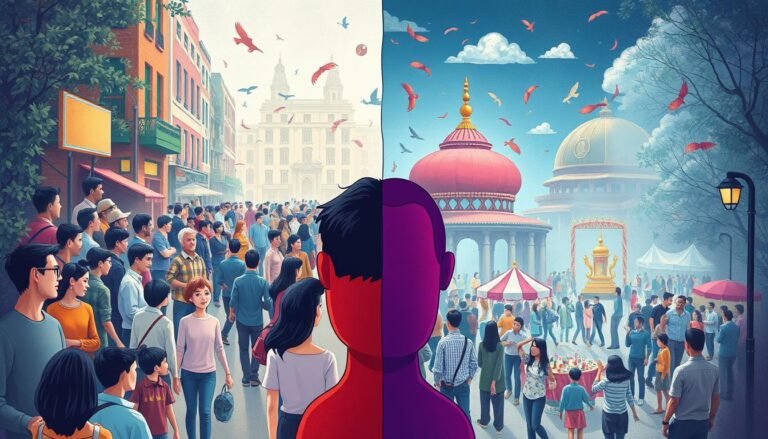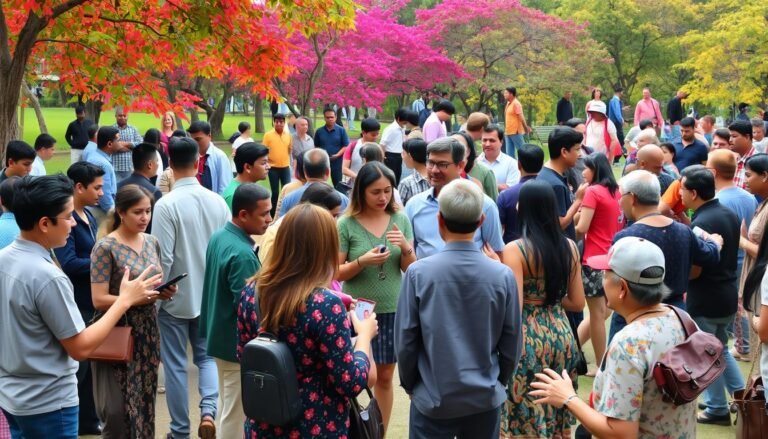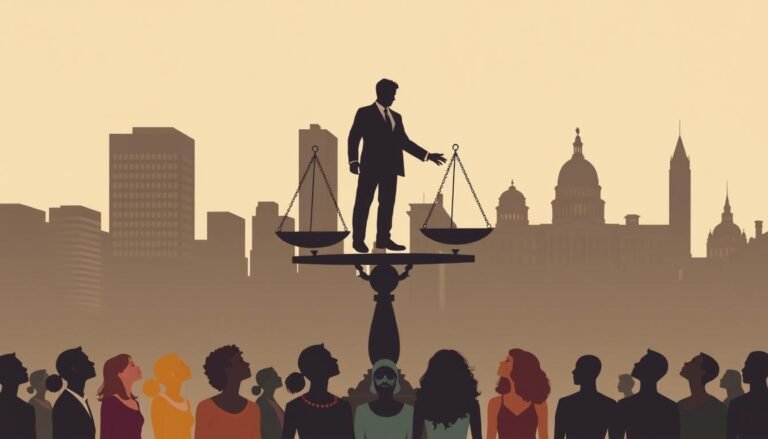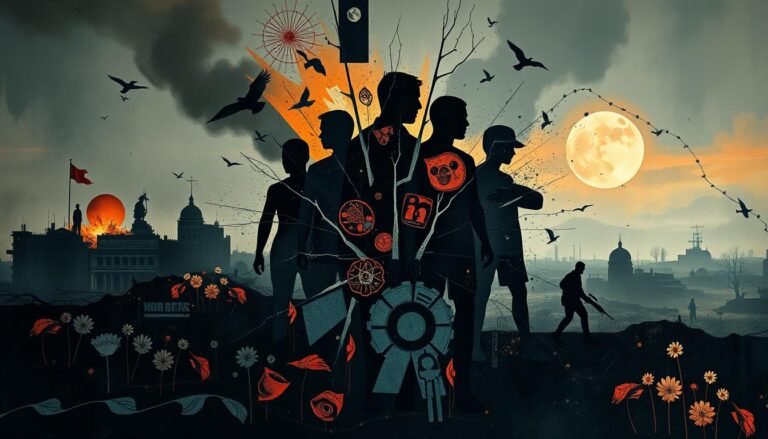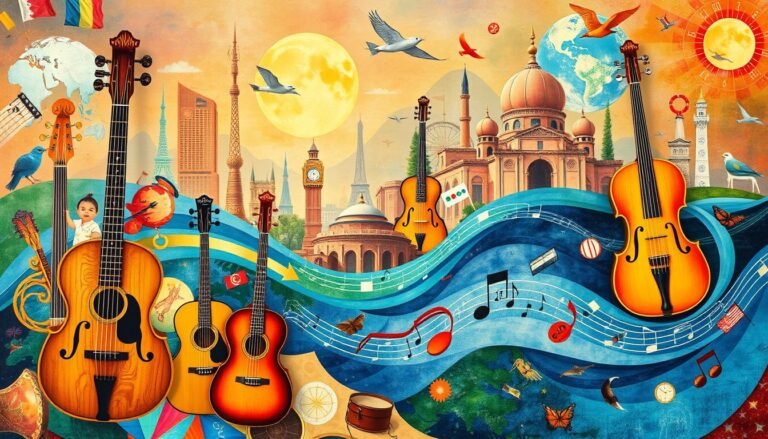The Impact of Neoliberalism on Global Societies
Have you ever thought about how one economic idea could change the world? Neoliberalism has done just that, leaving a big mark on our planet. This economic idea supports free markets and less government control. It has changed how countries work and how people live.
Neoliberalism became a big deal in the late 20th century. It pushed for privatization, less rules, and more global trade. Its reach goes way beyond just business talks, affecting our everyday lives. It touches healthcare, education, job security, and even the environment.
We’re going to look into how neoliberalism has changed the world. We’ll see its main ideas, its history, and the big changes it made in economies around the globe. Going through neoliberalism shows us a complex mix of good and bad outcomes.
Key Takeaways
- Neoliberalism promotes free market capitalism and reduced government intervention
- It has significantly influenced global economic policies since the 1980s
- The ideology emphasizes privatization and deregulation of industries
- Neoliberal policies have led to increased globalization and free trade
- The impact of neoliberalism extends to social, environmental, and health sectors
- Critics argue that neoliberalism has made wealth inequality worse
- Alternative economic models are emerging in response to neoliberalism’s challenges
Understanding Neoliberalism: Definition and Core Principles
Neoliberalism is a belief system that supports liberal and capitalist ideas, limits democracy, and has a small welfare state. It’s a political idea that guides how society should be structured. Famous thinkers like F. A. Hayek, Milton Friedman, and James Buchanan have shaped this view. They focus on freedom and economic success.
Free market capitalism and deregulation
Neoliberalism pushes for free market capitalism and less rules. It believes the government should not control the economy much. This idea is that markets work best on their own. Supporters say less rules lead to more innovation and growth.
Privatization and reduction in government spending
Privatizing public services and cutting government spending are key to neoliberalism. This change was seen when the British Labour Party changed its views in the 1990s. Neoliberals think private companies can do things better than the government.
Globalization and free trade
Neoliberalism also supports globalization and free trade. It wants to get rid of trade barriers between countries. This idea has influenced trade deals and economic plans around the world. The belief is that open markets bring more wealth and growth.
| Neoliberal Principle | Key Aspect | Example |
|---|---|---|
| Free market capitalism | Minimal government interference | Deregulation of financial markets |
| Privatization | Reduced government role | Privatization of national industries |
| Globalization | Removal of trade barriers | Free trade agreements |
Neoliberalism has changed global economic policies. But, it’s criticized for putting profit first and making competition the main focus of society. The 2007 financial crisis made people want more rules in finance, questioning some neoliberal ideas.
Historical Context: The Rise of Neoliberalism
In 1945, the world was setting up for neoliberalism’s rise. At that time, the ideas we now call neoliberal policies were unheard of. Western countries were into Keynesian economics, social democracy, or Marxism back then.
Post-World War II Economics
After the war, new groups like the IMF and World Bank were formed to help rebuild. The Welfare State and New Deal were brought back. Karl Polanyi’s 1944 book “The Great Transformation” warned about the dangers of market-based societies. He hoped society would keep its power over the economy.
Thatcher and Reagan Policies
Neoliberalism started to take off around 1979 with Margaret Thatcher in Britain. Ronald Reagan followed her lead in the US. They focused on competition, less rules, and selling off public assets. This was a big change from before.
Global Spread of Neoliberal Ideology
Neoliberalism spread far and wide through networks of groups and scholars. It changed how people thought, even during tough economic times. The fall of the USSR made it even more popular. Neoliberal ideas changed the rules in financial groups and economies all over the world.
| Year | Event | Impact |
|---|---|---|
| 1944 | Creation of IMF and World Bank | Aimed at reconstruction without controlling governments’ economic decisions |
| 1962 | Publication of “Capitalism and Freedom” | Milton Friedman’s work challenged prevailing Keynesian economics |
| 1979 | Thatcher’s neoliberal revolution | Marked the beginning of neoliberalism’s dominance in Britain |
| 1980s | Reagan’s presidency | Implemented neoliberal policies in the United States |
| 1991 | Collapse of USSR | Accelerated global adoption of neoliberal policies |
The Impact of Neoliberalism on Global Societies
Neoliberalism has changed the world, affecting economies and social policies. It started in the late 20th century and has changed how countries work together.
A study looked at 38 articles from 23 Indigenous communities in 12 countries. It found 88 ways neoliberal policies affect us all. This shows the big impact of this economic idea.
Neoliberalism has changed jobs and workers’ rights. Since 1979, there’s been more focus on competition and using resources well.
“The Great Transformation” by Karl Polanyi, published in 1944, offered insights into market-based societies. These insights are still relevant today.
Neoliberalism’s effects go beyond the economy. It has touched education, healthcare, and the environment. Now, market solutions are often preferred over public ones.
This has led to more private companies running public services. Governments now play a smaller role in the economy.
Since the 1970s, neoliberalism has shaped how countries make economic decisions. It has influenced groups like the IMF and World Bank. These groups now play big roles in the global economy.
Supporters say neoliberalism helps the economy grow. But critics say it has made income inequality worse and hurt social welfare systems. The debate is ongoing as we figure out neoliberalism’s long-term effects.
Economic Consequences of Neoliberal Policies
Neoliberal policies have changed the world economy a lot. They have made wealth spread out more unevenly and changed how people work. These changes affect societies all over the globe.
Wealth Inequality and Income Disparity
Neoliberal policies have made the gap between the rich and the poor bigger. Now, many countries face a big issue with wealth inequality. For example, in sub-Saharan Africa, spending on healthcare dropped from 6.1% to 5.5% of GDP between 1995 and 2015. This shows how these policies affect important services.
Corporate Power and Influence
Neoliberalism has made big companies more powerful in both the economy and politics. These companies now have a lot of influence. They often make policies that help them more than others. This has changed public services into things that make money.
Labor Market Flexibility and Job Insecurity
Trying to make the labor market more flexible has both good and bad sides. It can help the economy grow, but it also makes jobs less secure. Neoliberal policies push for individual work contracts and cut social welfare benefits. This leaves many workers at risk.
| Region | Healthcare Expenditure Growth (1995-2014) | Healthcare Expenditure per Capita (2014) |
|---|---|---|
| Sub-Saharan Africa | 4.7% | $97.6 |
| Southeast Asia and Pacific | 14.6% | $97.6 |
The effects of neoliberal policies have started a big debate. People wonder if these policies are good for the long run and if they help everyone. The data shows big differences in healthcare spending across regions. This highlights the issues of wealth inequality and corporate power.
Social Implications of Neoliberalism
Neoliberalism has changed the world, affecting social welfare and community life. For forty years, it shaped American policy, focusing on the individual over the community. This shift made people more focused on their own needs, changing how we interact with each other.
Its effects on social welfare are huge. Neoliberal policies cut down on public spending for things like education, healthcare, and housing. This approach has made the rich-poor gap bigger, making it harder for people to move up in life and increasing inequality.
Communities have also felt the blow. Putting the blame on individuals has weakened our sense of community. The trust in our institutions has dropped, especially during the COVID-19 pandemic. Experts say that if Americans trusted science, government, and each other more, 40% of US COVID deaths could have been avoided.
“The focus on profit-driven production under neoliberalism has led to the exploitation of the earth’s finite resources and contributed to climate breakdown.”
The environmental damage from neoliberalism is clear. Global temperatures started rising in the 1980s, right when neoliberalism took off. Even though some of the biggest companies are very rich, they’re also big polluters. This way of doing business is speeding up the use up of resources and harming the environment. We need to change our ways to protect the planet.
Neoliberalism and the Environment
Neoliberalism deeply affects the environment. It puts profit first, causing big environmental problems. We see this harm in many parts of our world.
Climate Change and Environmental Degradation
Neoliberalism’s effect on the environment is clear. Since the 1980s, global temperatures have gone up a lot. This matches when neoliberal ideas became more popular in Western countries.
Experts warn that temperatures could rise by 1.5°C to 4.5°C by 2100 if we don’t act. This warming is linked to more CO2 in the air, mainly from industrial activities.
Commodification of Natural Resources
Under neoliberalism, nature is turned into a commodity. This has led to taking too much from nature. Humans now take 25% of what nature produces, up from 13% in 1910. By 2050, this could go up by 14-30%.
This imbalance harms biodiversity and disrupts nature’s balance.
Challenges to Sustainable Development
Neoliberalism makes it hard to develop in a way that’s good for the planet. The “Treadmill of Production” idea says making more and more products leads to taking too much from nature and producing more greenhouse gases. This view puts the blame on consumers, not companies or big issues.
| Aspect | Impact |
|---|---|
| Temperature Increase | 1.5°C – 4.5°C by 2100 |
| Human Appropriation of Net Primary Production | 25% in 2005, expected to rise 14-30% by 2050 |
| Corporate Influence | 20 richest corporations among largest carbon emitters |
| Consumer Perception | Preference for consumer-based solutions over lifestyle changes |
We need to move away from putting profit first to protect our planet. Changing to sustainable ways is key to fighting climate change and keeping the environment healthy for the future.
Neoliberalism and Global Health
Neoliberal policies have changed global health systems a lot. They have made healthcare more private, changing how we get and give healthcare around the world.
Neoliberalism has made health outcomes worse for many people. When governments spend less on health, some communities can’t get the care they need. This makes health differences worse, especially in poor countries.
In India, neoliberal ideas have had a big effect. The World Bank and IMF pushed for more private healthcare and less public funding. Now, there’s a mix of underfunded public health services and a big private healthcare industry.
“Neoliberalism’s implications for health are materially embodied in ways deeply consequential for life and death.”
Studies show that neoliberal policies make people sicker and shorter-lived. The COVID-19 pandemic showed how hard market-based healthcare systems struggle with big health crises.
| Aspect | Impact of Neoliberalism |
|---|---|
| Primary Health Care | Constrained by austerity measures |
| Health Systems | Limited by international finance restrictions |
| Poor Communities | Face structural violence due to adjustments |
| Biological Material | Turned into frontiers for capitalist growth |
Neoliberal ideas have turned healthcare into a competitive market. This often hurts those who need it most. As these ideas guide policies, their effect on public health is a big worry and area of study.
Critiques and Alternatives to Neoliberalism
People are now questioning the economic model more than ever. The New Right rose in the 1960s, combining Big Business, Neo Cons, and Evangelical Right. This mix led to big changes in how we manage the economy and society.
Academic and Social Critiques
Experts like Guy Standing point out new social classes created by neoliberal policies. These include people living on low, unstable incomes. Migrants, refugees, and disabled people struggle more due to changes in welfare and Hostile Environment policies.
Alternative Economic Models
Now, new economic ideas are being explored. The Programme on Cohesive Capitalism started in 1978 looks into these alternatives. Groups like STICERD and CASE at the London School of Economics study social exclusion and new economic ways.
Social Movements and Resistance
Groups are forming to challenge neoliberal policies. They stand up for the working poor, who depend on Universal Credit but have no steady jobs. Middle-income people, seeing their incomes drop over decades, are joining these efforts to call for change.
- Grassroots organizations fight for migrants’ rights
- Disability advocacy groups challenge welfare reforms
- Labor unions push for better working conditions
As more people question neoliberalism, the search for new economic ideas grows. Social movements are key in fighting against bad policies. They push for fairer systems.
Conclusion
Over the last 40 years, neoliberal policies have deeply changed global societies. They promised faster economic growth and benefits that would trickle down to everyone. But, the truth is different.
These policies led to slower economic growth. Most benefits went to the top earners. This left many with stagnant wages. Meanwhile, stock markets went up, making wealth more concentrated at the top.
Neoliberalism’s effects go beyond the economy. Now, over half the world lives under autocratic rule. This shows a link between neoliberal policies and losing democratic values. The 2008 financial crisis showed the dangers of unchecked markets.
This crisis made people doubt economic ‘science’ and political systems. There’s a growing push for new economic models. These models focus on social fairness and protecting the environment.
Many economists and policymakers are questioning neoliberal ideas. They see the need for a balanced approach. As we face these issues, we must rethink our economic goals. We should aim for a global economy that’s more inclusive and sustainable.
Source Links
- Is Neoliberalism Killing Us? A Cross Sectional Study of the Impact of Neoliberal Beliefs on Health and Social Wellbeing in the Midst of the COVID-19 Pandemic
- Neoliberalism: What It Is, With Examples and Pros and Cons
- Neoliberalism
- Britannica Money
- A Short History of Neoliberalism | Transnational Institute
- The Rise and Fall of Neoliberalism
- Neoliberalism
- The impact of neoliberal generative mechanisms on Indigenous health: a critical realist scoping review – Globalization and Health
- What Is ‘Neoliberalism’, and How Does It Relate to Globalization?
- The implications of Neoliberalism on African economies, health outcomes and wellbeing: a conceptual argument
- Britannica Money
- How Neoliberalism Destroyed the Planet and Why Capitalism Won’t Save Us
- Reviewing the relationship between neoliberal societies and nature: implications of the industrialized dominant social paradigm for a sustainable future
- Neoliberalism and the Environment: Are We Aware of Appropriate Action to Save the Planet and Do We Think We Are Doing Enough?
- Globalisation and neoliberalism as structural drivers of health inequities – Health Research Policy and Systems
- Microsoft Word – Health and Neoliberalism shorter revision.docx
- Citizen Network: What is the alternative to neoliberalism?
- Alternatives to neoliberalism
- The end of neoliberalism and the rebirth of history
- Neoliberalism: the idea that swallowed the world


